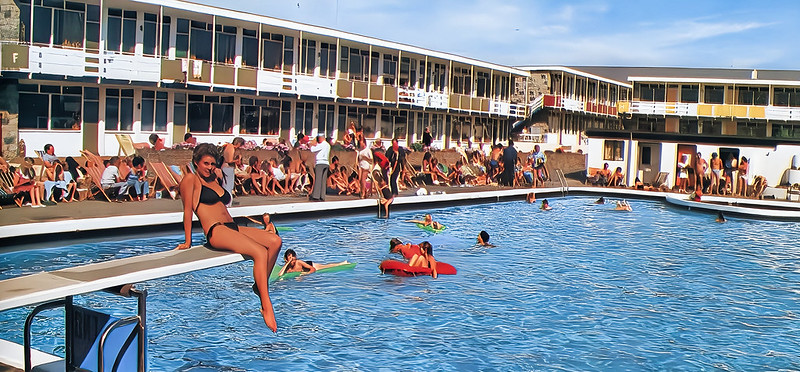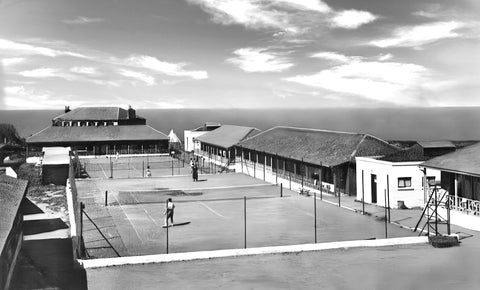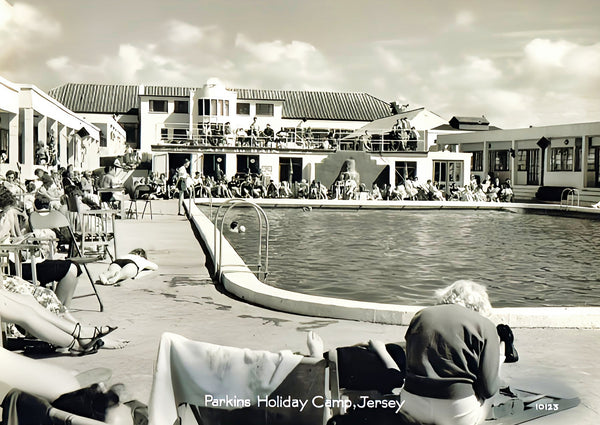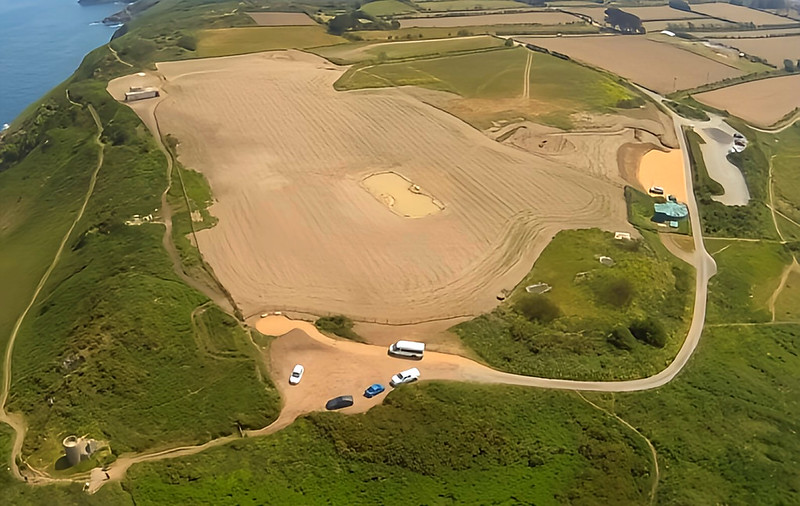Your cart is currently empty!

Pontins Plemont Bay Holiday Camp
The Plemont Hotel, nestled on a remote headland in northwest Jersey, opened its doors in 1874. The hotel, known for its dramatic cliffside views and rugged surroundings, soon became a popular seaside retreat. However, the site also had its share of mysterious events. In 1926, hotel guests discovered a 26-year-old woman, drenched and disoriented, standing on the cliffs. She was later identified as a Londoner who had been on holiday in Yorkshire, and had absolutely no idea how she ended up in the sea in Jersey.

In 1934, construction began on a 350-capacity holiday camp next to the hotel, named the Jubilee Holiday Camp. In 1937 a huge fire destroyed 40 chalets, forcing guests to take refuge in the ballroom. During World War II, the site was taken over and occupied by Nazi forces as they took control of the island.



The remains of the 11 acre camp were purchased by circus impresario Stanley Parkin in 1946 who rebuilt and renamed it Parkins Holiday Camp. Shortly afterwards the island parliament voted to ban construction of any new holiday camp on the island.

The Plemont Hotel remained in use but was tragically destroyed by fire in 1948. The blaze claimed the life of 36-year-old staff member Steve Radcliffe, although his body was never found.
In 1961 the camp was sold to Fred Pontin for £375,000 after negotiations reduced the original asking price of £500,000.
Pontins Plemont Bay underwent extensive rebuilding between 1967 and 1968. The old chalets were swept away and replaced with new two-storey blocks. The existing swimming pool and entertainment building were both retained and modernised. The camp was a full-board facility which meant that all meals were included and taken in the large communal dining room. Chalets were “hotel style”, basically just a bedroom and bathroom.




Billy Butlin served on the board here during his retirement years in Jersey. The camp thrived for several decades but eventually closed at the end of 2000. It then spent the next 15 years abandoned and vandalised. Various proposals to cover the land with housing were rejected after strong local opposition.

In 2014, the National Trust for Jersey acquired the site for £7 million. The camp was demolished in 2015, and the land was restored to its natural state. Today, nothing remains of the once-popular holiday camp, and the area has been returned to its natural beauty.


We’d love to hear your stories and memories of the camp. Please feel free to share your comments below.
Leave a Reply